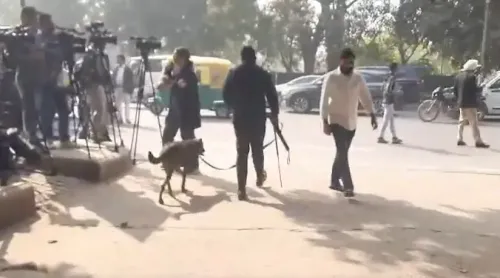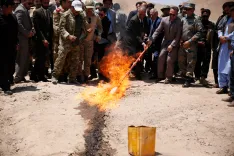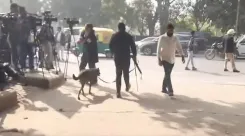Why Did ISI's Kashmir Revival Encounter Setbacks?

Synopsis
Key Takeaways
- ISI has shifted its strategy in Jammu and Kashmir.
- Many recruits are financially motivated rather than ideologically committed.
- The Faridabad terror module consists of educated professionals.
- Radicalization now often occurs without formal camps.
- Encrypted communication apps are utilized to evade detection.
New Delhi, Nov 18 (NationPress) The ISI has opted for a significant change in its approach after recognizing that a large portion of its recruits in Jammu and Kashmir lacked ideological ties. In recent times, many of these recruits in the Valley displayed a primary motivation tied to financial gain rather than a commitment to any ideology. Terror organizations like Jaish-e-Mohammad and Lashkar-e-Taiba have been grappling with this issue since the abrogation of Article 370, leading to recruits focusing more on monetary incentives than the underlying cause.
This shift is particularly illustrated by the Faridabad terror module associated with Jaish-e-Mohammad, which primarily consisted of medical professionals responsible for planning, recruitment, and funding.
Investigators interrogating the arrested doctors connected to this case reveal that these individuals were not primarily motivated by money. Most sought out Jaish-e-Mohammad rather than the other way around, which offered certain advantages for the group.
Radicalization often poses a significant challenge before one joins any terror organization. A truly radicalized individual is genuinely committed to their cause, while many simply feign radical beliefs to access financial rewards.
In the instance of the Faridabad module, nearly all members had self-radicalized without attending any established camps for this process. In their communications with their handlers, financial requests were notably absent. Many held lucrative jobs and were willing to finance their operations themselves.
Except for a payment of Rs 20 lakh for recruitment and ammunition, these members did not request anything further. Their professional and educated backgrounds allowed them to operate under the radar of security forces.
Thanks to their expertise, Jaish-e-Mohammad effectively utilized these members for planning sophisticated attacks. During inquiries, it was found that their capabilities extended to adept planning and use of encrypted communication platforms.
Investigations revealed that the Faridabad module maintained contact with each other and their foreign handlers via a Swiss app called Threema, which was chosen by Dr. Umar Muhammad, the Delhi bomber. This app’s design—requiring neither an email nor a phone number—renders tracking almost impossible.
Such strategies are beneficial for terror groups, justifying their preference for highly educated recruits. Recently, terrorism has increasingly migrated online, necessitating skilled experts capable of managing digital propaganda and recruitment.
The trend of 'white-collared terrorism' has been in existence for over a decade, with groups like Al-Qaeda and Islamic State primarily enlisting educated individuals. This tactic facilitates operations on foreign soil, as these terrorists adapt more seamlessly to diverse environments.
Intelligence agencies suggest that this trend will likely continue, with Pakistan-based groups such as Lashkar-e-Taiba and Jaish-e-Mohammad increasingly utilizing this approach for deeper incursions into India.









